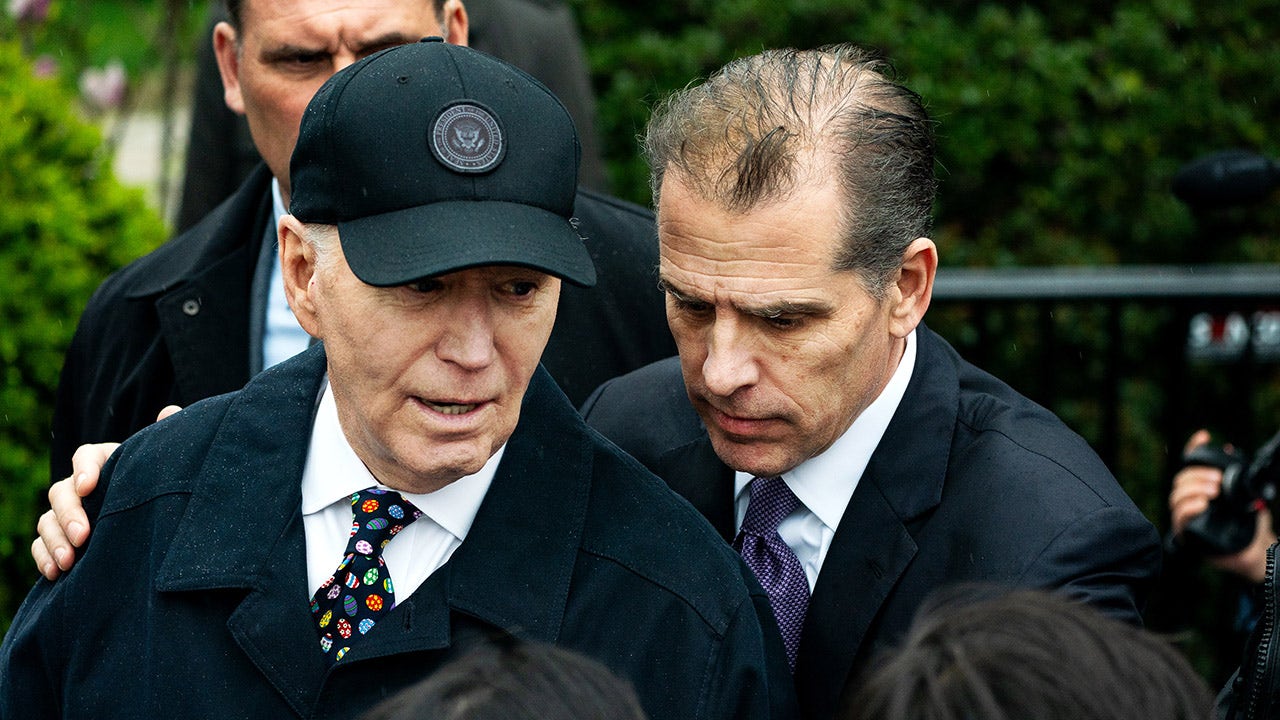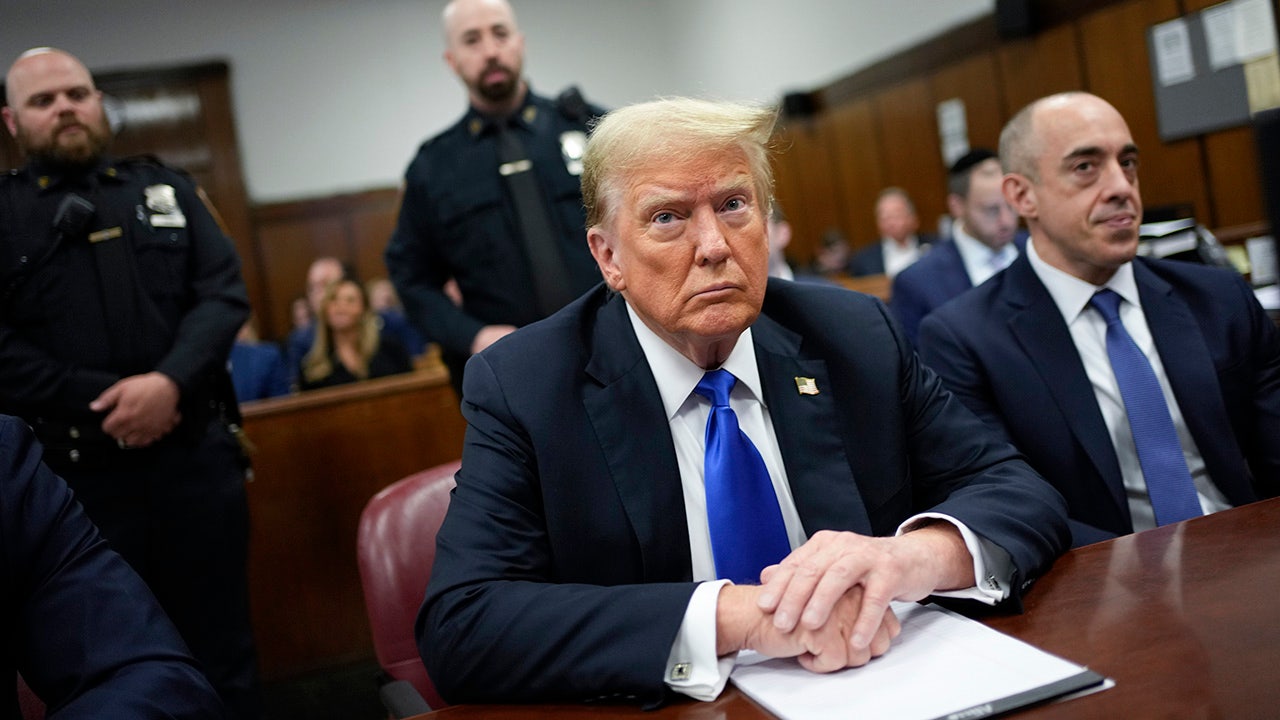Crypto
Crypto Nonprofit Launches PAC to Support Pro-Crypto Politicians in 2024 Elections

A cryptocurrency nonprofit has launched a political action committee (PAC) with the intent to support crypto-friendly politicians in the 2024 House and Senate elections.
What Happened: “Stand With Crypto,” a cryptocurrency nonprofit, has launched a PAC to raise funds from its 440,000 members to support a bipartisan group of candidates, Reuters reported on Wednesday. This move is part of a broader effort by the crypto industry to elect politicians who support crypto and blockchain.
This involvement comes at a time when the industry is under scrutiny, especially after FTX founder Sam Bankman-Fried was found guilty of stealing from customers.
Unlike super PACs, Stand With Crypto’s PAC is established to collect funds for candidates or political causes and cannot receive donations of unlimited size or coordinate directly with campaigns.
See Also: Tom Brady Roasted For Cryptocurrency Investment In Netflix Special: ‘Tom, How Did You Fall For That? Even Gronk Was Like—Me Know That’s Not Real Money’
“The goal is to endorse candidates and support candidates that are protecting the rights of our advocates of Stand With Crypto throughout November,” said Nick Carr, chief strategist at Stand With Crypto.
Why It Matters: Other crypto super PACs such as Fairshake, Defend American Jobs, and Protect Progress have already raised over $110 million this election cycle, according to Federal Election Commission records. The involvement of crypto in politics is not new. Earlier this year, the Fairshake PAC received a significant financial boost from the Winklevoss twins, founders of the Gemini crypto exchange, as part of their larger fundraising efforts.
Former U.S. President Donald Trump has also publicly endorsed cryptocurrency, declaring it a significant election issue, contrasting with President Joe Biden‘s perceived unfamiliarity with the crypto world. This endorsement has led to a surge in the MAGA Coin, a cryptocurrency themed around Trump.
Read Next: Here’s How Much $1,000 Invested In Dogecoin Would be Worth If You Invested When Elon Musk First Tweeted About DOGE
Image by Dall-E
Engineered by Benzinga Neuro, Edited by
Pooja Rajkumari
The GPT-4-based Benzinga Neuro content generation system exploits the extensive Benzinga Ecosystem, including native data, APIs, and more to create comprehensive and timely stories for you.
Learn more.

Crypto
562,000,000 People Across the Globe Now Own Cryptocurrency, According to New Study – The Daily Hodl

Roughly 6.8% of the global population now holds crypto assets, according to digital currency payment company Triple-A.
In a new report, Triple A says the number of people who own cryptocurrency is now 562 million, up by about 34% from 420 million in 2023.
Of the countries worldwide, the United Arab Emirates has the highest cryptocurrency ownership rate at 25.3%, followed by Singapore at 24.4%.
Other leading countries include Turkey (19.3%), Argentina (18.9%), Thailand (17.6%), Brazil (17.4%), Vietnam (17.4%), United States (15.5%), Saudi Arabia (15.0%), Malaysia (14.3%) and Hong Kong (14.3%).
Says Triple-A,
“Among the top 30 countries with the highest ownership rate, we find countries from various continents and economic standings – ranging from emerging markets like Turkey and Argentina to smaller economies such as Slovenia and Luxembourg.
Asia strengthens its reputation as a hub for digital currency adoption and innovation, with 10 of its countries ranking among the top 30 globally with the highest adoption rates.”
As to what drives the global surge in cryptocurrency ownership, Triple-A points to regulatory changes that paved the way for the approval of Bitcoin (BTC) spot exchange-traded funds (ETFs).
Discussions of crypto events such as the Bitcoin halving and the expanding educational resources that address the growing demand for information about digital assets also attract new investors.
The report says macroeconomic factors such as inflation and currency devaluation also fuel the rising adoption of cryptocurrencies.
Triple-A says new opportunities await as more people are likely to embrace crypto.
“With half a billion users globally, increased regulation, and technological advancements, cryptocurrency adoption and use rates will continue to rise.”
Don’t Miss a Beat – Subscribe to get email alerts delivered directly to your inbox
Check Price Action
Follow us on X, Facebook and Telegram
Surf The Daily Hodl Mix
 
Disclaimer: Opinions expressed at The Daily Hodl are not investment advice. Investors should do their due diligence before making any high-risk investments in Bitcoin, cryptocurrency or digital assets. Please be advised that your transfers and trades are at your own risk, and any losses you may incur are your responsibility. The Daily Hodl does not recommend the buying or selling of any cryptocurrencies or digital assets, nor is The Daily Hodl an investment advisor. Please note that The Daily Hodl participates in affiliate marketing.
Featured Image: Shutterstock/Hangouts Vector Pro/Nikelser Kate
Crypto
Missing Cryptoqueen Ruja Ignatova’s links to Bulgaria underworld
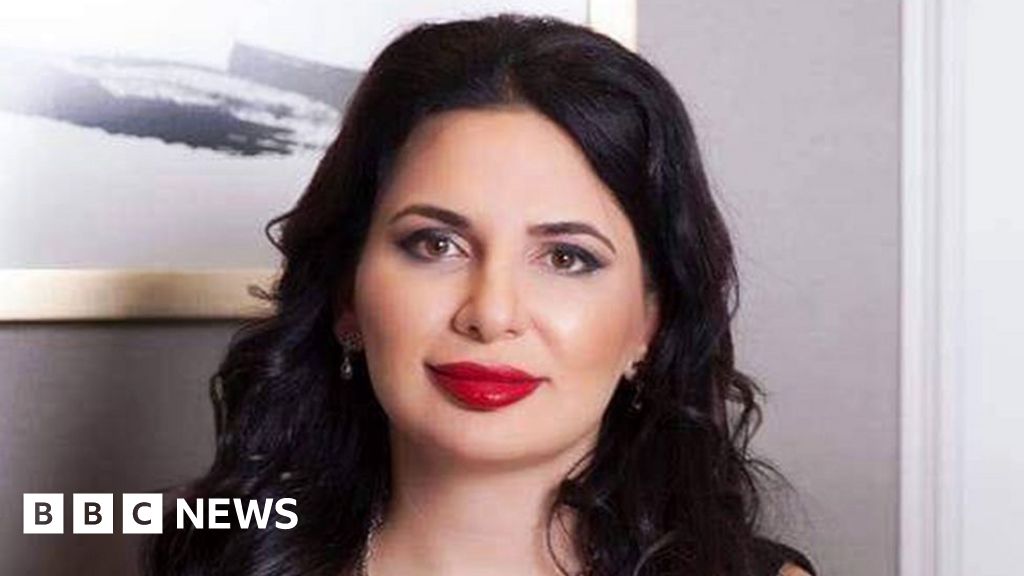
BBC Eye Investigations, Panorama team and The Missing Cryptoqueen podcast,BBC World Service and BBC News
 Shutterstock
ShutterstockNow we have gone on her trail to try to discover her fate. BBC Eye Investigations and Panorama have looked at her close ties to a suspected Bulgarian organised crime boss and allegations she was brutally murdered. Did Ms Ignatova enjoy the stolen billions or was she killed by the very people paid to protect her?
Oxford University graduate Ruja Ignatova was born in Bulgaria and raised in Germany, pursuing a successful career in finance before launching the cryptocurrency OneCoin in 2014.
Ms Ignatova convinced millions of people around the world to invest in OneCoin, promising to eclipse the kind of huge returns seen by early Bitcoin investors.
But in reality, Ms Ignatova – known to many as Dr Ruja – had created a cleverly-disguised investment fraud, without the digital record that underlies legitimate cryptocurrencies like Bitcoin.
As investigators from Germany and the US closed in on Ms Ignatova in October 2017, she took an early morning Ryanair flight from Sofia to Athens, never to be seen again.
For the past year, BBC World Service’s Eye Investigations and Panorama have been trying to find out more about what happened to her, and whether she is even alive.
Key to this was establishing who her inner circle was.
Richard Reinhardt, who began the investigation into OneCoin for the US Internal Revenue Service alongside the FBI, told the BBC about a key character investigators have never publicly named before.

The Missing Cryptoqueen: Dead or Alive?
CEO of fake cryptocurrency OneCoin, Ruja Ignatova, is the FBI’s most wanted woman. She stole billions, then vanished. New evidence reveals what may have happened. Is she missing or was she murdered?
Watch now on BBC iPlayer (UK only) or on BBC One at 20:00 on Monday 3 June (22:40 in Wales). Outside of the UK, watch on YouTube
Or listen to The Missing Cryptoqueen on BBC Sounds

The BBC understands it is the man who had been given the role of keeping Ms Ignatova safe – Hristoforos Nikos Amanatidis, commonly known as Taki.
“We were told, allegedly a big-time drug guy was in charge of her physical security,” Mr Reinhardt told us in his first interview since retiring in late 2023.
“Taki came up more than once, it wasn’t like it was a one-off. That was a recurring theme.”
This chimed with the information we already had – US government lawyers had said in 2019 that Ms Ignatova’s head of security was a major organised crime figure in Bulgaria but hadn’t named him.
“We do have evidence that a very significant, if not the most prolific, drug trafficker of all time in Bulgaria, was closely linked to OneCoin – served as [Ruja Ignatova’s] personal security guard,” an assistant attorney said.
This was the same “head of security” a different US government lawyer said was “involved in the disappearance” of Ms Ignatova in court a day earlier.

According to Mr Reinhardt, Ms Ignatova was a far more sophisticated criminal than most people realise.
“This is like a white-collar criminal combined with a drug trafficker or mafia guy on steroids.”
This theory appears to be supported by leaked Europol documents, seen by the BBC, which show that – before Ms Ignatova disappeared in 2017 – Bulgarian police had established connections between her and Taki.
In the documents, police suspect Taki of using OneCoin’s financial network to launder the proceeds of drug trafficking.
In his native Bulgaria, Taki has an almost mythical status – an El Chapo or Pablo Escobar. He is widely suspected of being the head of a Bulgarian organised crime organisation and a prolific drug smuggler. He and his associates have been investigated there for armed robbery, drug smuggling and murder, but he has never been successfully prosecuted for anything.
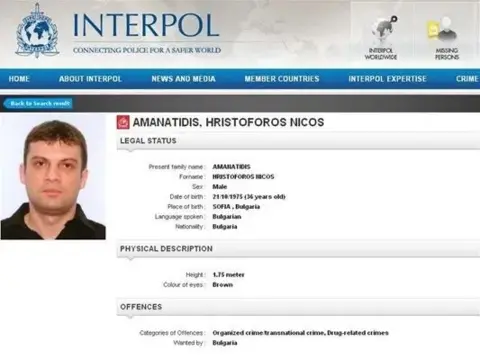 Interpol
Interpol“When we talk about Taki, he’s the head of the mafia in Bulgaria. He’s extremely powerful,” says a former Bulgarian deputy minister, Ivan Hristanov, who in 2022 investigated allegations Taki ran a criminal network with the help of corrupt officials – and believes that was the case.
“Taki is the ghost. You’ll never see him. You only hear about him. He’s talking to you through other people. If you don’t listen, you just disappear from earth.”
“The only person who can protect her [Ignatova] from all those investigations, including from foreign agencies – it was Taki.”
The BBC wrote to the Bulgarian government about the allegations regarding corrupt officials. It did not respond. The prosecutor’s office in the capital Sofia says it “does not cover up crimes and persons who have possibly committed crimes”.
Taki is now believed to live in Dubai, where Ms Ignatova bought a luxury penthouse and where her bank accounts received tens of millions of dollars from the OneCoin fraud.
While it’s not known how Taki and Ms Ignatova met, or whether he was involved with OneCoin from the start, multiple sources say they had a close personal relationship and that he was the godfather to her daughter.
One Bulgarian source close to Ms Ignatova told the BBC she may have paid Taki up to €100,000 a month for protection
There appear to be other financial ties between Ms Ignatova and Taki.
The Europol documents mention a complex deal to sell a plot of land, on Bulgaria’s Black Sea coast, that links one of Ms Ignatova’s companies to Taki’s wife.
The secret police documents were passed to the BBC by Frank Schneider, a former spy and adviser to Ms Ignatova who has since disappeared.
He told us that his old boss was working with “crooks” and “gangsters”.

When we interviewed Mr Schneider at his home in France, he was under house arrest, awaiting extradition to the US in connection to the OneCoin scam. He was not, however, prepared to reveal names.
“I’m not going to tell you who, because I have a family… This is real serious organised crime.”
But in the end, Ms Ignatova’s protector may have turned aggressor.
In 2022, Bulgarian investigative journalist Dimitar Stoyanov and his colleagues at the investigative news outlet bird.bg were handed a police report that had been found at the home of a murdered Bulgarian police officer.
In the document, a police informant details overhearing Taki’s brother-in-law drunkenly saying Ms Ignatova had been murdered on Taki’s orders in late 2018, and her body dismembered and dumped off a yacht in the Ionian Sea. Mr Stoyanov says this account is “very, very possible”.
The authenticity of the police document was confirmed by Bulgarian officials, and multiple criminal associates of Taki believe the theory he had her murdered to be true, Mr Stoyanov says.
However, the BBC has been unable to independently verify the claim.
The associates’ rationale being that the wanted Ms Ignatova became a liability to Taki, who wished to eliminate his links to the OneCoin fraud.
Those associates include Krasimir Kamenov, known as Kuro, wanted by Interpol on murder charges.
Mr Stoyanov says Kuro told him he had heard Taki discussing his criminal business in front of Ms Ignatova, and when Kuro had challenged Taki on whether he should be doing that, Taki had answered: “Don’t worry, she’s as good as dead.”
Kuro had also claimed to have talked to the CIA about Taki, including about the allegation that Taki had ordered Ms Ignatova’s murder. Sources close to Kuro confirmed to the BBC that this meeting took place in late 2022.
In May 2023, Kuro was assassinated in his Cape Town home, along with his wife and two others who worked for him. South African police are still searching for the killers, but Bulgarian former deputy minister Hristanov believes Kuro’s murder is linked to Taki.
“Certain people had to be removed because they knew too much about Taki.
“It was kind of a public execution that looked more like a statement. Be careful who you deal with,” he told us.
Since publishing allegations of Ms Ignatova’s murder, journalist Dimitar Stoyanov says he and his colleagues have faced death threats, forcing him to temporarily leave Bulgaria for the fourth time in his career.
Mr Stoyanov doesn’t claim to know a motive for any alleged murder, but property records show, and eyewitnesses have told him, that since her disappearance, a number of her Bulgarian properties are now being used by people connected to Taki.

Taki has never been arrested over claims he had Ms Ignatova murdered. Her body has never been found and investigators say they don’t have enough evidence to prosecute him.
But former IRS investigator Richard Reinhardt thinks Ms Ignatova is likely to be dead. Although he has not seen any evidence linking her death to Taki, he says it fits with how drugs cartels operate.
“There’s no honour among thieves… knowing how violent cartels are, if [Taki] thought she was a threat to him… he would probably take her out instead of getting caught.”
The BBC wrote to Taki’s lawyers about the allegations in this investigation – they didn’t respond.
In 2022, Ms Ignatova was placed on the FBI’s Ten Most Wanted list – where she remains today.
The BBC team behind The Missing Cryptoqueen podcast has received various sightings and tip-offs about Ms Ignatova’s whereabouts after her alleged murder took place – including details of an unsuccessful police operation in Greece to catch her in 2022.
It could be that rumours of her death are just another brilliant manoeuvre to throw everyone off the scent.
If that is the case, as the years go by, it is likely to become increasingly difficult for her to stay on the run.
“At some point it becomes like Elvis Presley might be still alive… It’s not really very likely,” says Mr Hristanov.
According to Mr Reinhardt, the FBI “don’t just keep people in [the] Top Ten list for fun”. But they would only remove someone if there was “definitive proof” they were dead. And given the circumstances, with Ruja Ignatova there may never be.
And that means, for now at least, the missing Cryptoqueen remains a hunted woman.
Crypto
Biden Shoots Down Measure Limiting SEC Crypto Authority

President Joe Biden has vetoed a resolution limiting the Securities and Exchange Commission’s (SEC) authority over the cryptocurrency sector.
Biden announced the veto Friday (May 31) evening, saying that the legislation would have constrained regulators’ ability to put up guidelines for the crypto industry.
“Appropriate guardrails that protect consumers and investors are necessary to harness the potential benefits and opportunities of crypto-asset innovation,” Biden said.
“My administration is eager to work with the Congress to ensure a comprehensive and balanced regulatory framework for digital assets, building on existing authorities, which will promote the responsible development of digital assets and payment innovation and help reinforce United States leadership in the global financial system.”
The measure would have ended the SEC’s special rules for custodians of crypto assets, a move supported by both the digital asset sector and the banking industry. Congress passed the legislation last month, but the White House had said the president planned to veto it.
The veto follows last month’s passage of the Financial Innovation and Technology for the 21st Century (FIT21) Act by the U.S. House, which establishes a federal framework designed to ensure regulatory certainty for digital assets and provide key protections for consumers.
“The bill, which was first voted to the House floor in 2023, passed the House by a vote of 279 to 136, with 208 Republicans and 71 Democrats voting to approve it,” PYMNTS wrote recently. “Its bipartisan passage shows how far the embattled crypto sector has come, from a regulatory perspective, in America.”
But the adoption didn’t come without controversy. On the morning of the vote, SEC Chair Gary Gensler said the cryptocurrency bill would undermine his agency’s work.
The legislation, Gensler stressed, “would create new regulatory gaps and undermine decades of precedent regarding the oversight of investment contracts, putting investors and capital markets at immeasurable risk.”
And the Biden administration has also opposed the legislation, saying that it “lacks sufficient protections for consumers and investors who engage in certain digital asset transactions,” at least in its current form.
“Still, the bill passed, providing a glimmer of hope to an industry that has long bemoaned the lack of regulatory clarity around its operations in the U.S,” PYMNTS wrote.
-

 News1 week ago
News1 week agoRead the I.C.J. Ruling on Israel’s Rafah Offensive
-

 World1 week ago
World1 week agoHoping to pave pathway to peace, Norway to recognise Palestinian statehood
-

 News1 week ago
News1 week agoLegendary U.S. World War II submarine located 3,000 feet underwater off the Philippines
-

 World1 week ago
World1 week agoFamilies of Uvalde school shooting victims sue Microsoft, Meta and gunmaker
-
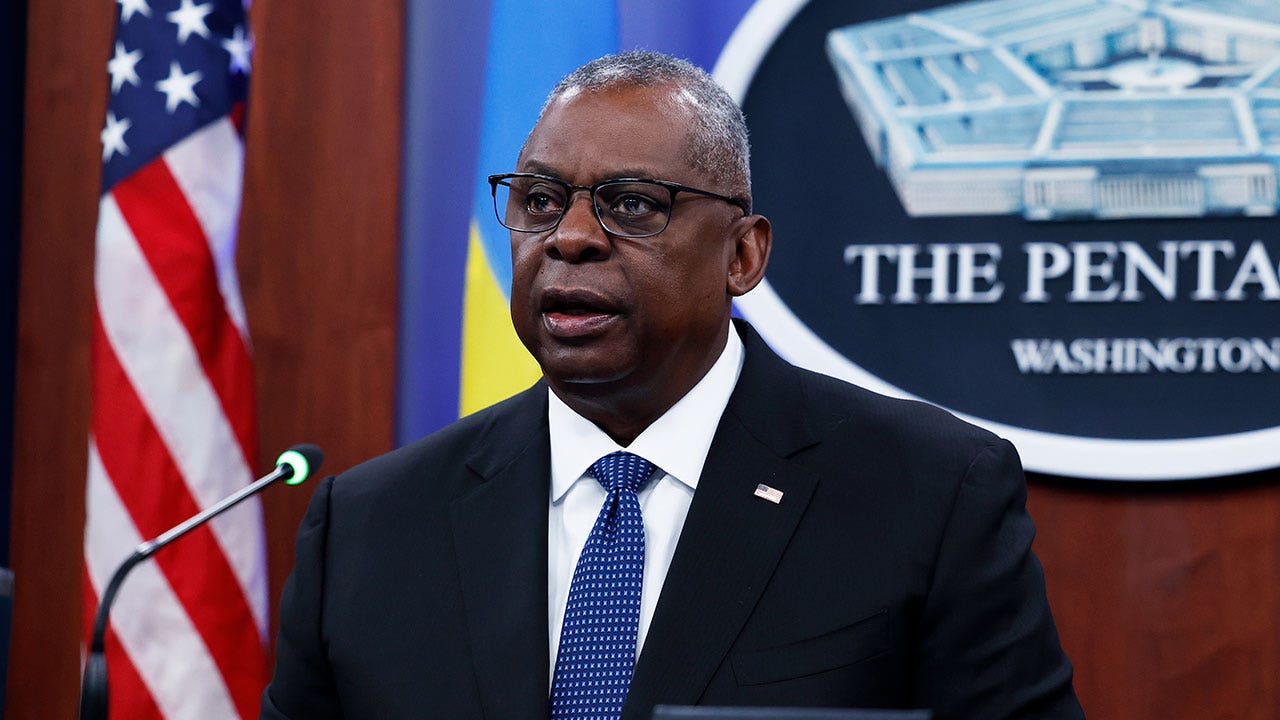
 Politics1 week ago
Politics1 week agoDefense Secretary Lloyd Austin to undergo nonsurgical procedure, Deputy Kathleen Hicks will assume control
-

 Politics1 week ago
Politics1 week agoHunter Biden attends pre-trial hearing in Delaware court on federal gun charges
-

 News1 week ago
News1 week agoHere are three possible outcomes in the Trump hush money trial : Consider This from NPR
-

 News1 week ago
News1 week agoPrimate remains on the loose in South Carolina | CNN

















